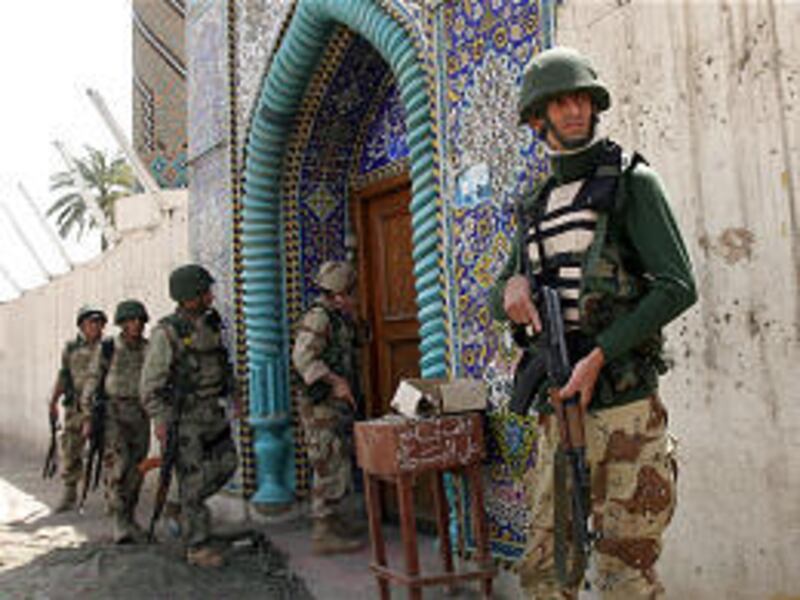In his infamous statement after returning from a conference in Berlin in 1938, British Prime Minister Neville Chamberlain announced "that there has come back from Germany to Downing Street peace with honor. I believe it is peace in our time."
Time is, of course, a relative measurement. Chamberlain did have peace in that very moment, but it did not last long at all. And it never was a peace with honor.
For Democrats in Congress, this may not exactly be 1938, but the passage of a bill that sets a hard timetable for the withdrawal of U.S. troops from Iraq makes the same mistakes.
First, leaving Iraq on an arbitrary schedule might bring temporary peace to U.S. fighting forces, but it would not be an honorable one. To telegraph the nation's intentions would give the enemies a clear idea of U.S. strategy and make it much easier for them to plan for eventual victory. It would constitute appeasement.
It also is dishonorable to tie such conditions to a military spending bill, with the clear expectation that they will lead to a presidential veto. Sen. Joseph Biden, D-Del., and Rep. John Murtha, D-Pa., were quoted by The Associated Press as saying subsequent bills should have similar conditions attached to drive the point home. (Not all conditions in the current bill were war-related. One attachment would raise the minimum wage to $7.25 an hour.) The Army likely would begin to suffer financially by June or July if nothing is passed.
Second, any peace obtained by a premature withdrawal would, as in Chamberlain's day, be short-lived. Al-Qaida has infiltrated Iraq and is anxious to seize it for its own. Iran is anxious to obtain nuclear weaponry to solidify its own power in the region, and Israel would be more vulnerable than ever. The United States may find itself returning to a situation that is much worse and far more deadly.
The flip side to all this is that the Bush administration has done a woeful job of outlining its strategy for victory and of selling the importance of the war to the folks at home. It has made mistakes that are difficult to overcome, and it has done little to increase recruiting efforts or to come to terms with the psychological toll on an over-deployed armed forces. But none of its opponents have articulated a better long-term course.
The unfortunate truth is there is no solution to the war in Iraq that does not project huge casualties on one side or the other. The best course is one that quickly helps Iraqis take responsibility for their own security. To do that, the administration most likely needs to have strong deadlines in mind, and to make the Iraqi government, and no one else, aware of them.
But to hold the armed forces, and the nation's commander in chief, hostage to a public timetable and other unrealistic conditions is not only a detriment, it is as naive as anything Chamberlain ever did.

